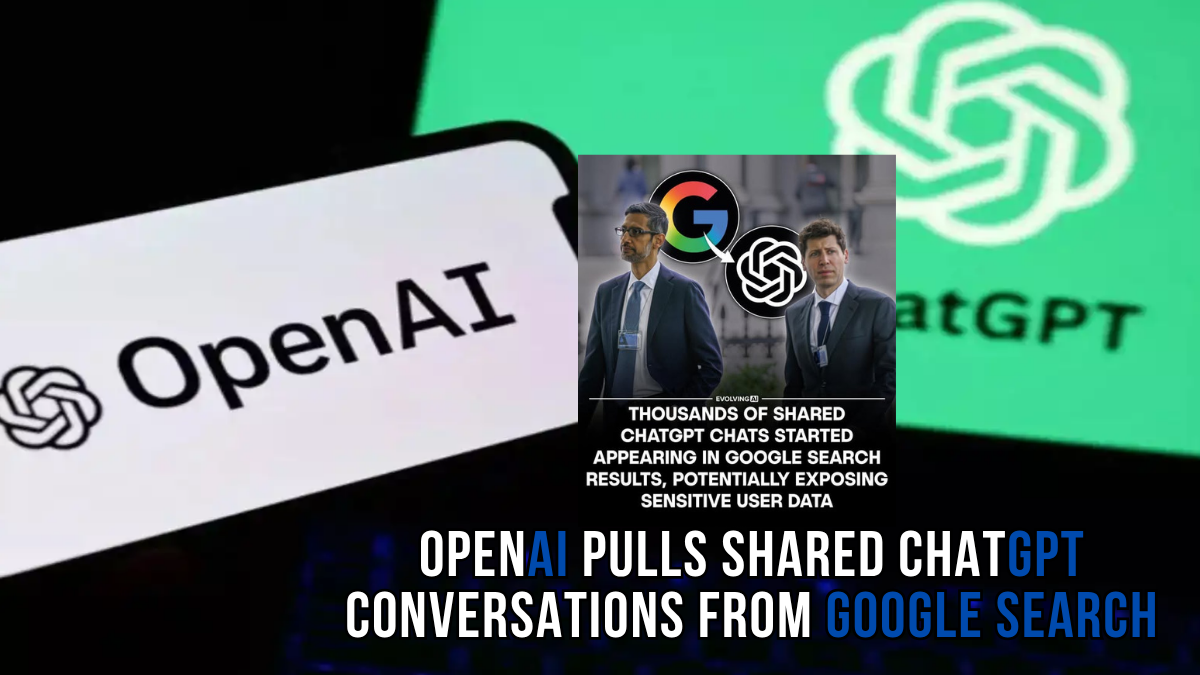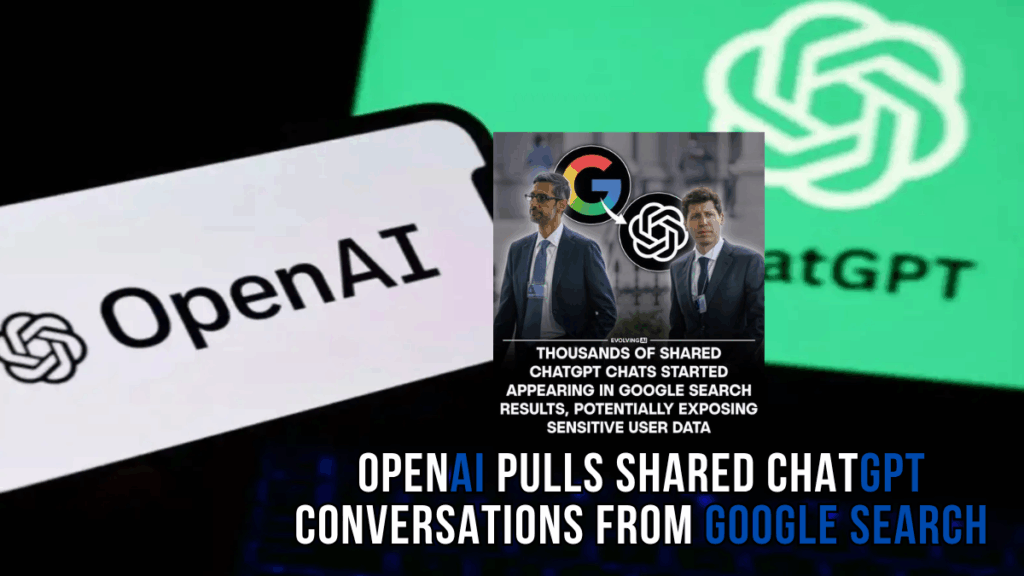OpenAI has officially disabled a controversial feature that allowed publicly shared ChatGPT conversations to appear in Google Search results. This decision comes in response to rising privacy concerns after thousands of user-shared conversations, some containing sensitive personal data, were indexed by Google.

Summary Table
Key Point |
Details |
|---|---|
Feature Disabled |
Shared ChatGPT links are no longer discoverable by search engines |
Privacy Concern |
Over 4,500 shared links were indexed, some containing personal data |
Company Response |
OpenAI is removing the feature and working with Google to de-index links |
Action Taken |
Toggle for discoverability removed; content removal underway |
User Impact |
Public links may still appear temporarily due to caching |
Security Reminder |
Deleted chats from history do not delete shared URLs |
Official Website |
What Was the Discoverability Feature?
OpenAI quietly introduced a feature that allowed users to make their shared ChatGPT conversations “discoverable” by search engines such as Google. When sharing a conversation, users could toggle an option to let that chat be indexed and appear in public search results.
The intention was to help people discover useful or informative conversations by searching for relevant prompts or topics.
However, the opt-in nature of this feature, though deliberate, was not widely understood. Many users likely enabled search indexing without fully realizing the potential risks associated with exposing private data to the public internet.
Why This Became a Privacy Issue
The issue gained widespread attention when Fast Company reported that over 4,500 shared ChatGPT links had been indexed by Google. These links included:
- Names and resumes
- Personal reflections and emotional content
- Sensitive business conversations
- Confidential project or work-related information
Although these links were shared voluntarily by users, the ease with which they were indexed raised red flags in the cybersecurity and privacy communities.
OpenAI’s Official Statement
OpenAI confirmed the removal of this feature in an official response:
“We just removed a feature from ChatGPT that allowed users to make their conversations discoverable by search engines. This was a short-lived experiment to help people discover useful conversations… Ultimately, we think this feature introduced too many opportunities for folks to accidentally share things they didn’t intend to, so we’re removing the option.”
The company emphasized that security and privacy are top priorities, and they are working with Google and other search engines to remove already indexed content.
How the Sharing Feature Previously Worked
Here’s a step-by-step overview of how the now-disabled feature functioned:
- User Shared a Chat:
Users could share a ChatGPT conversation using the “Share” button. - Visibility Toggle:
A checkbox allowed the chat to be indexed by search engines. - Discoverability:
If checked, the conversation could appear in Google Search or other engines. - Link Management:
These links remained active unless manually deleted by users.
Importantly, even if a user deleted the conversation from their ChatGPT history, the shared URL remained live and visible online if search indexing had been enabled.
What Happens Now?
OpenAI’s Actions:
- The discoverability toggle has been removed.
- No new conversations will be indexed by Google.
- Existing indexed chats are being removed with the help of search engines.
- Rollout of this update is expected to complete within a day (from the time of announcement).
For Users:
- Shared links will still work unless manually deleted.
- Content may still appear in search temporarily due to caching.
- You can manage your shared links through the ChatGPT Shared Links Dashboard.
Why This Matters
The incident serves as a cautionary tale about the risks of sharing AI-generated conversations publicly:
- Many users input personal or sensitive information into ChatGPT without realizing that a shared link could expose it.
- This case highlights the blurred line between private and public data when it comes to AI tools.
As AI chatbots become more embedded in daily tasks and workflows, awareness of data sharing and visibility becomes crucial.
Lessons for Users: How to Stay Safe
Here are a few steps users can take to ensure their ChatGPT conversations remain private and secure:
- Avoid entering sensitive personal or work-related data.
Even if conversations seem private, they can be shared unintentionally. - Do not enable sharing features unless necessary.
When sharing, double-check who can view the content. - Regularly review your Shared Chats dashboard.
Delete links that are no longer relevant or could pose privacy risks. - Be cautious about embedding ChatGPT conversations into public documents, websites, or forums.
Once indexed, deletion becomes difficult. - Monitor your name or company in search engines.
Use Google Alerts or manual searches to check for unexpected visibility.
OpenAI’s Privacy Philosophy Going Forward
This incident may influence how OpenAI and other AI platforms implement public sharing features in the future. OpenAI’s quick response shows the company is aware of its accountability when user data is inadvertently exposed, even with opt-in features.
The company now appears to be rethinking how public-sharing options are designed, ensuring that future features are more secure, transparent, and understandable for all users.
Frequently Asked Questions (FAQs)
1. Can I still share ChatGPT chats publicly?
Yes, but they will not appear in Google Search or be indexed by search engines. You must manually share the link.
2. What happens to previously shared chats?
They still exist but will not be indexed by Google going forward. Already-indexed links may still appear temporarily due to caching.
3. How can I remove my shared chats?
Visit the ChatGPT Shared Links dashboard and delete links manually. Deleting them from your chat history alone is not enough.
4. Why did OpenAI enable this in the first place?
The goal was to make valuable AI-generated conversations easier to discover and reuse. However, it created privacy risks for some users who misunderstood the feature.
5. Will the deleted feature ever return?
There’s no confirmation. OpenAI is likely reassessing public-sharing mechanics to prevent future issues.
Final Thoughts
The removal of the ChatGPT link discoverability feature marks a significant pivot in how AI tools should approach user privacy. Even optional, well-intentioned features can backfire when not clearly communicated or understood.
As a user, it’s important to treat every interaction with an AI platform as potentially visible and to adopt best practices for safeguarding personal information.
For the latest updates and privacy tools, visit the official OpenAI website.
For More Information Click Here









